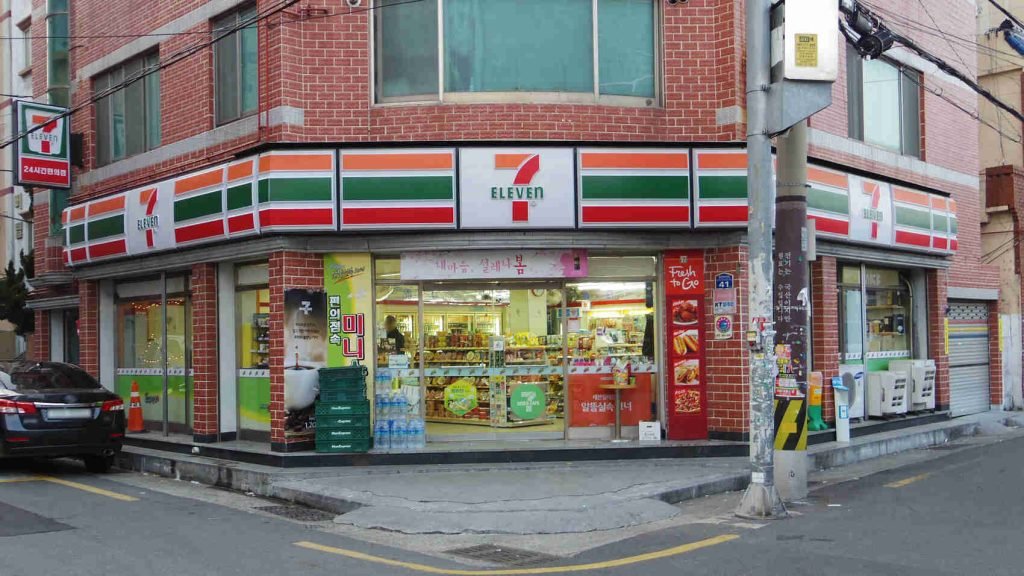As the dawn breaks and city lights begin to fade, one illuminating sign that stays constant is the radiant green, red, and orange logo of 7-Eleven. This name has become synonymous with convenience in the fast-paced world we live in. It’s more than just a convenience store; it’s a symbol of our on-demand, 24/7 culture.
This blog post aimed at answering the question many have asked: “Why is 7 Eleven so expensive?” We will be providing seven reasons, each supported with a comprehensive explanation, and exploring this topic with an eagle-eye view. Let’s dive into the world of convenience stores and explore the underlying factors that contribute to the costs at 7-Eleven.
Also Read: Does 7-Eleven Deliver Cigarettes? (What To Know!)
7 Reasons Why is 7-Eleven So Expensive?
Reason 1: Convenience at a Cost
Location, Location, Location!
The 7-Eleven motto is ‘Oh thank heaven for 7-Eleven’, a catchy phrase that encapsulates their dedication to providing customers with easily accessible and convenient products. But is this convenience free? Far from it! The strategic positioning of these stores in high-traffic areas demands premium real estate prices, which inadvertently affects the pricing of the products.

The Price of Operating 24/7
One distinctive feature of 7-Eleven is that it’s always open, 24 hours a day, 7 days a week, living up to its name. However, such continuous operation requires more labor, increased utility bills, and other additional expenses, which contribute to the overall pricing strategy.
Related: Does Taco Bell Accept 50 Dollar Bills?
Reason 2: High-Quality and Wide Range of Products
Assortment of Premium Brands
At 7-Eleven, quality over quantity rings true. The shelves are filled with recognized, reputable brands, providing customers with reliable products they know and love. Unfortunately, these top-tier brands come with higher price tags, which 7-Eleven has to account for in their retail pricing.
Variety is the Spice of Life
From snacks and beverages to personal care products, 7-Eleven has it all, offering a wide range of products to cater to every need. The logistical costs of maintaining such an expansive inventory can certainly contribute to the higher prices seen in these convenience stores.
Reason 3: The Franchise Model
Franchise Fees and Associated Costs
7 Eleven operates on a franchise model, where individual owners manage the stores. These owners pay franchise fees and a percentage of their sales to 7-Eleven. These additional costs are typically absorbed into the pricing structure, contributing to the overall high prices.
Individual Pricing Freedom
Franchise owners have a level of pricing freedom. Depending on their store’s location and operating expenses, some might choose to set higher prices to cover their costs or maximize their profits.
Reason 4: Elevated Operating Expenses
Staffing and Maintenance
With stores open 24/7, the staffing and maintenance costs of a 7-Eleven are naturally higher than those of a typical retail store. Higher wages for night shifts, frequent cleaning, and maintenance all factor into the increased pricing.
Inventory Management
7 Eleven stores carry a broad assortment of products in smaller quantities, leading to higher per-unit costs and more frequent deliveries, thus increasing operational expenses and, by extension, product pricing.
Reason 5: It’s More Than Just a Store
The Fast Food Connection
Many 7-Eleven stores have fast food services like hot dogs, pizzas, and more. The additional expenses involved in running these services can add to the overall pricing of products in the store.
Other Services
Services such as ATMs, lottery tickets, and money transfers are frequently available at 7-Eleven stores. These additional services demand resources and space, contributing to the operating expenses and thus affecting the pricing.
Reason 6: The Customer Base
Targeting the Impulse Buyer
7 Eleven targets the convenience-seeking, impulse-buying consumer. Given their strategic locations, they’re often the closest and most convenient option, allowing for premium pricing.
The Late-Night Crowd
7 Eleven also targets customers who need goods during unconventional hours. These customers are often willing to pay a premium for the convenience of purchasing items outside typical business hours.
Reason 7: Taxes and Regulations
Local and State Taxes
The prices at 7 Eleven can also be affected by local and state taxes. Depending on the region’s tax laws, you might notice a considerable increase in the price of certain items.
Compliance with Local Regulations
In certain areas, regulations may necessitate additional business licenses or compliance measures, leading to increased operating expenses and therefore higher product pricing.
Frequently Asked Questions
Why are convenience stores like 7-Eleven more expensive than supermarkets?
The convenience, extended operating hours, and strategic location of stores like 7-Eleven come at a cost. These factors, combined with elevated operating expenses and the high-quality range of products, result in higher prices compared to traditional supermarkets.
Does 7-Eleven price gouge?
It’s not so much about price gouging as it is about covering increased operating costs and providing convenient services. 7 Eleven is a franchise model with stores that operate 24/7, offering an array of products and services at all hours.
Why are products at 7-Eleven priced differently in different locations?
Prices can vary based on the store’s location, local tax laws, and the individual franchise owner’s discretion.
Does 7-Eleven have sales or discounts?
Yes, 7 Eleven often has sales, discounts, and loyalty programs to provide customers with value for their money.
Is shopping at 7-Eleven worth the extra cost?
If convenience and time-saving are a priority for you, then the slightly higher prices at 7 Eleven may be worth it.
Why does 7-Eleven carry premium brands?
Carrying premium brands aligns with 7-Eleven’s commitment to quality and customer satisfaction. However, these brands come at a higher cost, reflected in the retail prices.
Conclusion
So, why is 7-Eleven so expensive? As we’ve seen, the answer lies in a blend of strategic convenience, operating costs, the franchise model, a wide range of high-quality products, additional services, and local regulations. While prices may be higher than traditional supermarkets, the convenience, variety, and 24/7 availability provided by 7-Eleven often make it worth the extra bucks.


